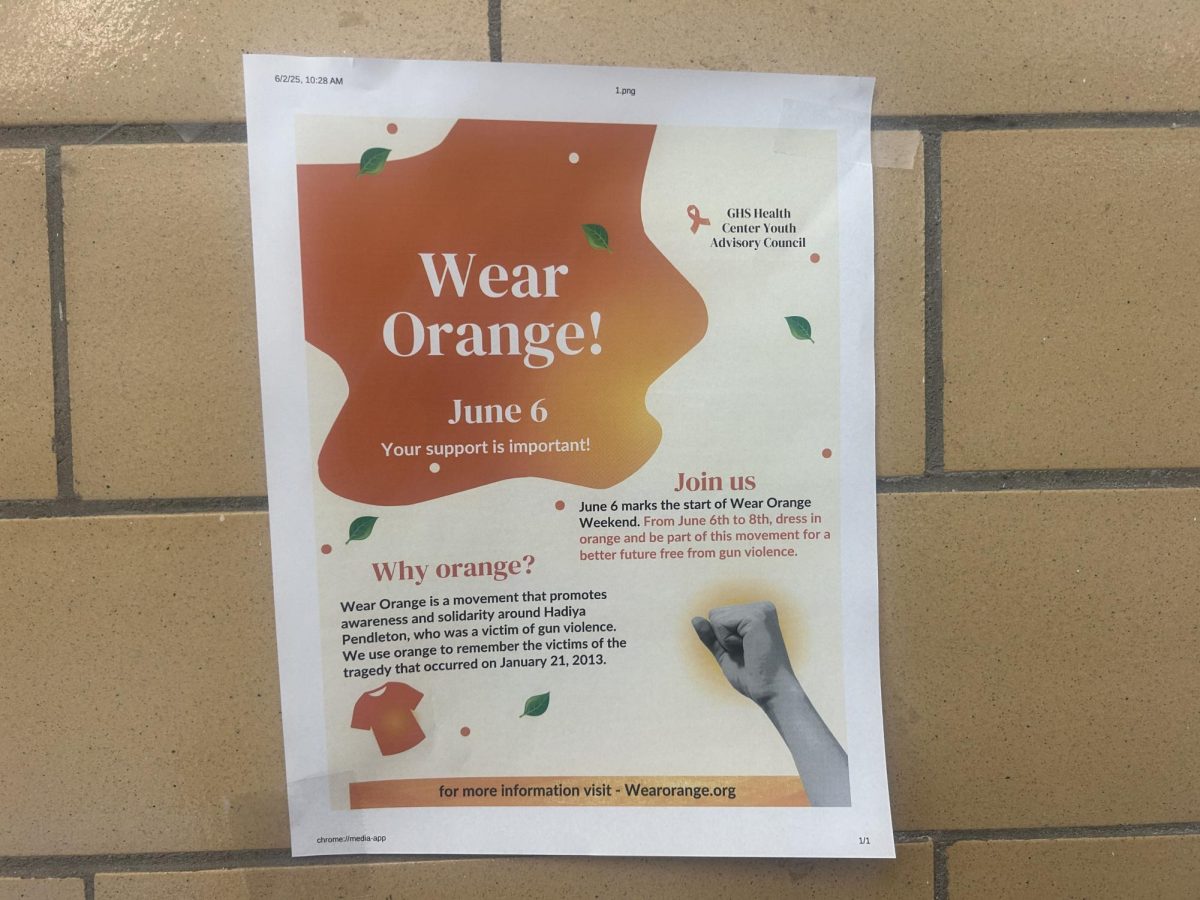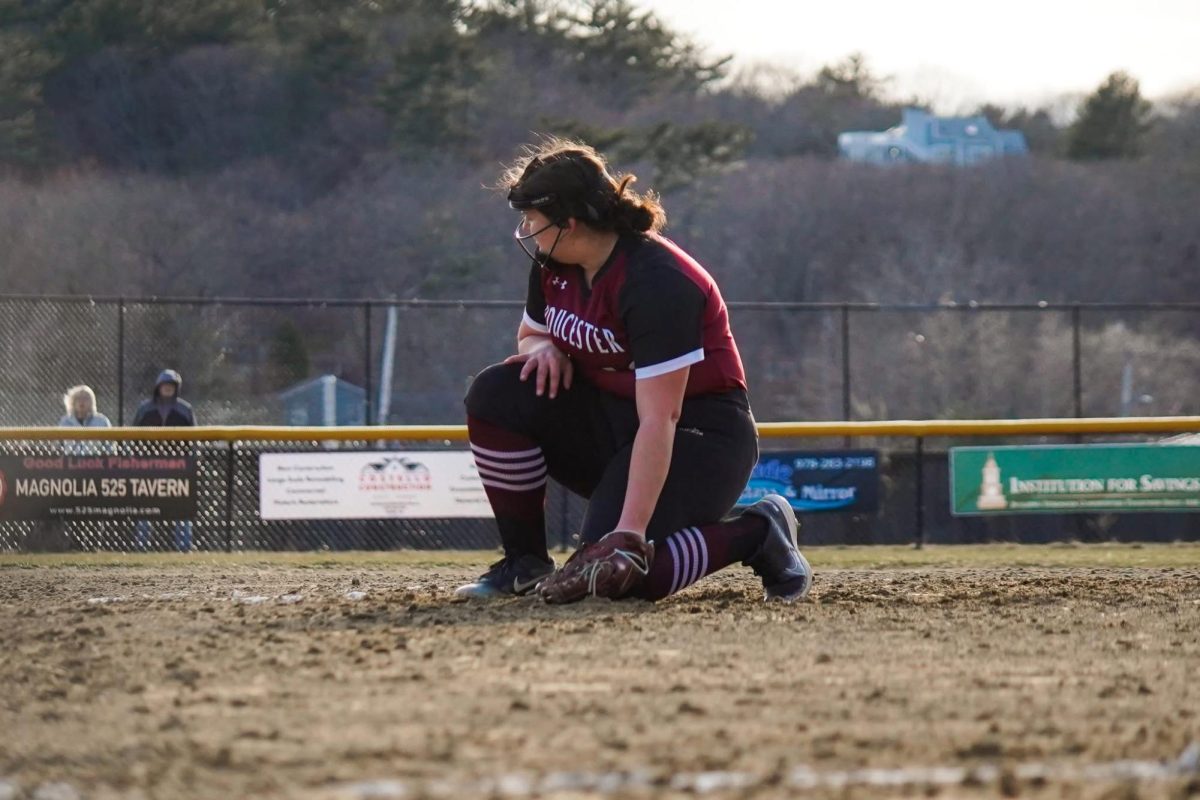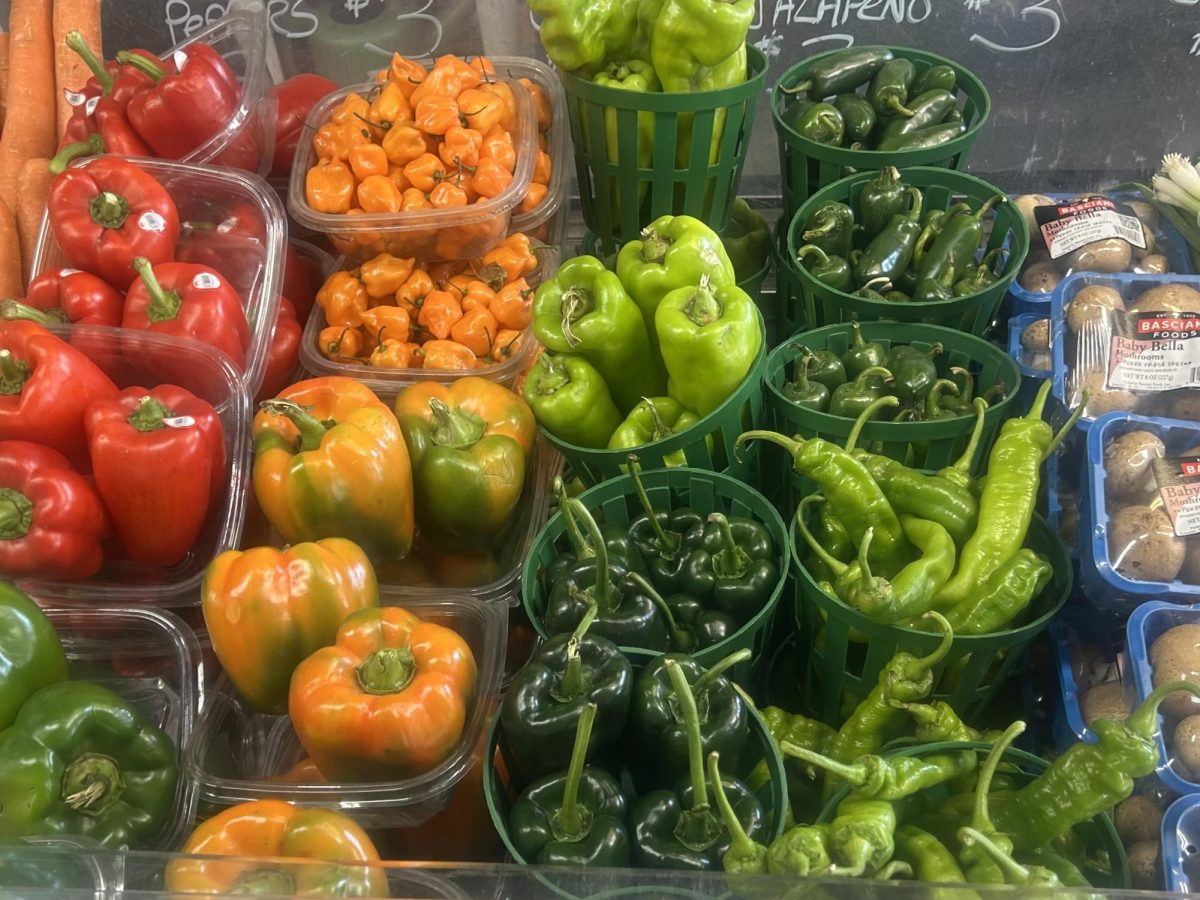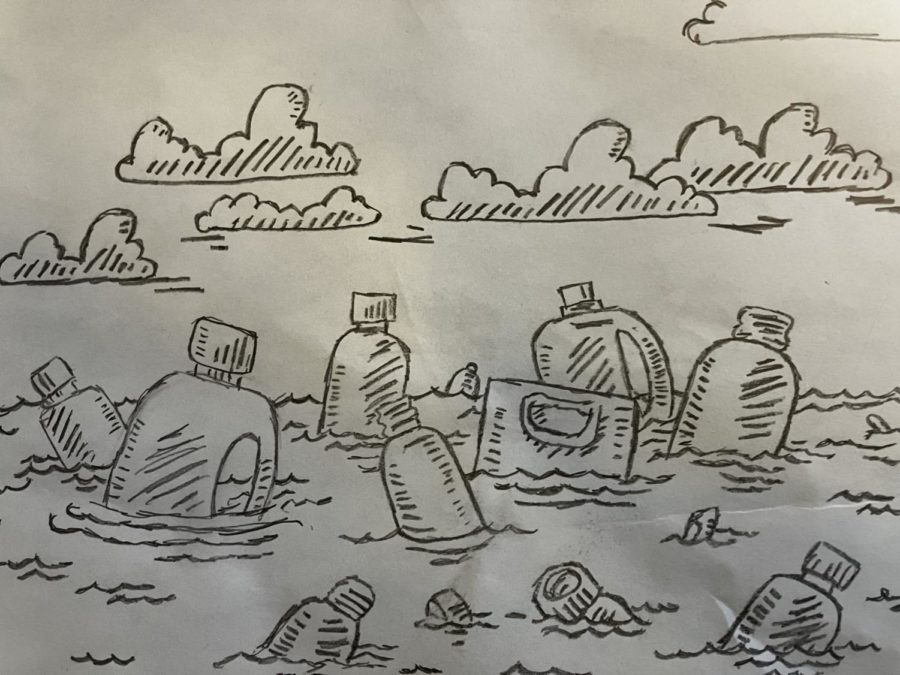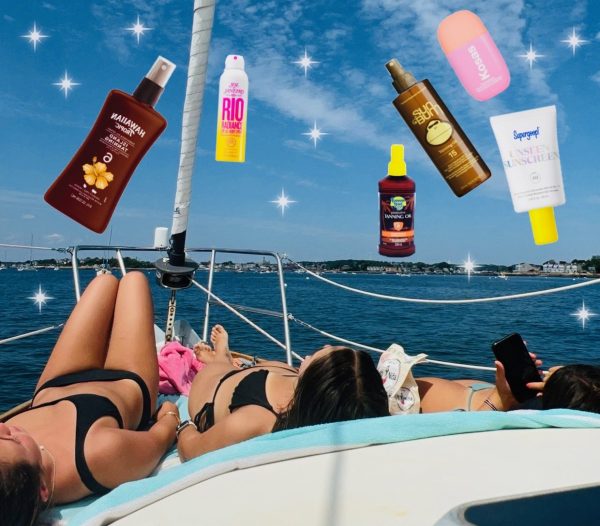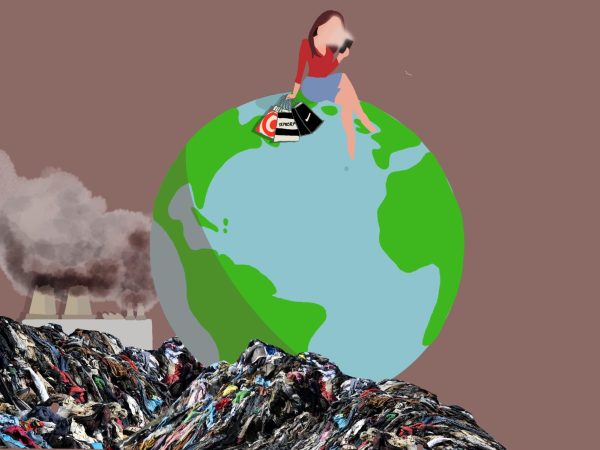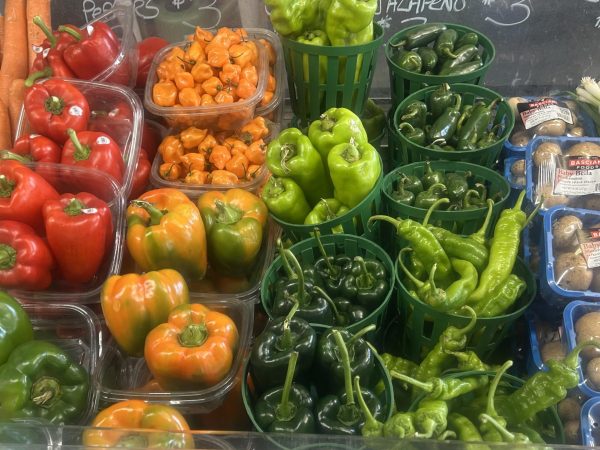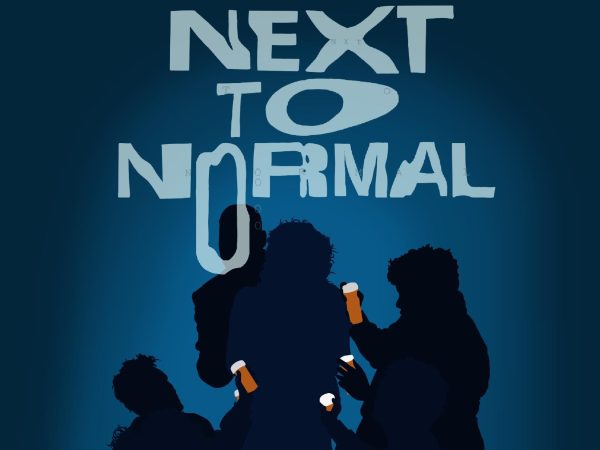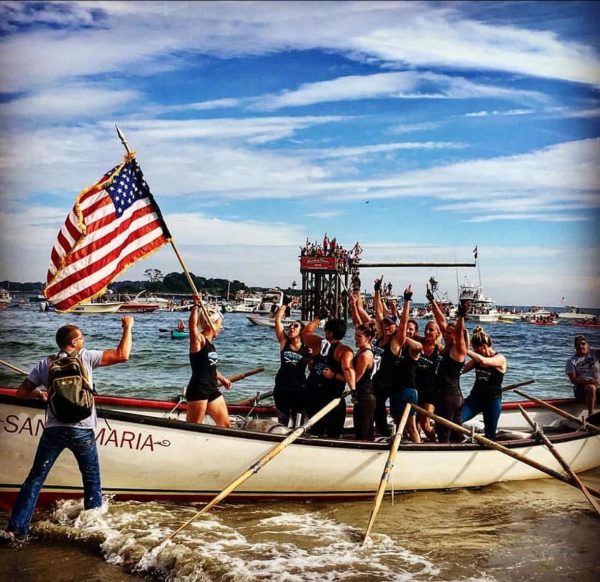A message to tourists: respect our beaches
Willow Barry’s depiction of the effects of beach pollution.
As the coming of June has ushered in warm summer weather, many of Gloucester’s residents find themselves headed for the beach to kick off their long-awaited summer. However, residents are not the only ones visiting the beaches—they also find themselves sharing the space with a large number of tourists.
Gloucester has long been a frequent attraction for many tourists, who typically flock to the city in the summer months to enjoy the beaches, seafood, and scenery. Over the years, tourism has grown to become an essential part of Gloucester’s economy. According to a recent report published by the Boston Business Journal, tourism has become the largest industry in Gloucester. The industry continues to grow as more and more visitors discover the city every year, and this year, Good Harbor Beach found itself on Travel and Leisure Magazine’s list of the 25 Best Beaches in America. This growth in tourism has had a number of positive impacts: the creation of jobs, allowing for the success of small businesses and restaurants, and bringing in revenue for the city.
From the growth of tourism, a variety of issues have arisen regarding Gloucester’s beaches. Not least among these issues is the impact that tourism has on the cleanliness and environmental well-being of the beaches and wildlife species that inhabit them. In recent years, as more and more tourists visit the beaches, this problem has grown more prominent.
More tourists mean more beachgoers, and more beachgoers mean more trash that builds up on the beaches. This is especially evident during the times of the summer when more tourists visit the beaches, such as holidays and long weekends like Memorial Day weekend and the Fourth of July.
After these weekends, the beaches, specifically Good Harbor and Wingaersheek, are typically found to be littered with plastic bags, beer cans, broken beach equipment, and an assortment of other trash.
Lia Numerosi, who recently organized a Gloucester Beach Cleanup, reported that her team found that the beaches “were not clean—we found cigarettes, small alcohol bottles, and other trash, and one team member even found a needle.”
These items, when left on the beaches, create an unsafe environment, both for beachgoers and wildlife who are exposed to them. This trash can harm fragile species native to the beaches such as piping plovers, an endangered species that has recently been threatened by the negligence and lack of cleanliness of beachgoers. Trash, if consumed by the plovers, can be deadly. Additionally, trash attracts birds such as seagulls and crows, which can eat and destroy plover eggs. (See here for more details). Furthermore, trash has other negative effects on Gloucester’s ecosystem. When trash enters the water, it can kill sea creatures that either ingest it or get tangled in it. It also pollutes the environment, creates unsanitary swimming and fishing conditions, and disturbs marine ecosystems.
In addition to contributing to the trash problem, some tourists also participate in illicit fishing and clamming activities at beaches that can have devastating effects on marine life. These tourists often see these activities as fun, outdoor day-trip activities, when in reality they are harmful to the environment.
According to a letter written to the Shellfish Advisory Panel by Gloucester Shellfish Constable Peter Seminara, Gloucester Shellfish Constables have written over 400 citations for illegal clamming violations between 2019 and 2022. The report also pointed out that a “great majority of the offenders we encounter are not compliant or cooperative, especially during the summer when large amounts of tourists visit our beaches.”
By clamming against regulations, often at Gloucester Beaches, tourists can disrupt ecosystems by depleting the ocean. Shellfish constables in Gloucester have reported some offenders harvesting up to 70 pounds of clams illegally. Additionally, removing large amounts of clams from the water can have negative economic consequences, as depleted oceans can disrupt the commercial clamming industry.
Although tourists certainly are not the only culprits of this damage, they do make up a sizable portion of beachgoers. Additionally, they often do not have the same understanding of Gloucester’s wildlife as residents do, which can lead them to inadvertently harm natural habitats.
Tourism itself is, by no means, the problem. Tourism has brought many positive effects to the city and its economy, and the community of Gloucester is heavily dependent on tourism. However, a greater awareness among tourists as to what consequences their actions will bring about is necessary for Gloucester’s wildlife to thrive. Additionally, tourists need to respect local laws when it comes to these issues, such as cleaning up their trash at the beaches per Gloucester’s “Carry In, Carry Out” policy, following the clamming and fishing regulations, and not crossing into reserved areas that are set aside for plovers and other native species. If tourists can respect these rules, then Gloucester’s beaches will be cleaner and safer spaces for both locals, tourists, and wildlife.

Willow is a junior at GHS, and is a second year writer/illustrator for The Gillnetter. She swims for the school and a private team, she also enjoys participating...


